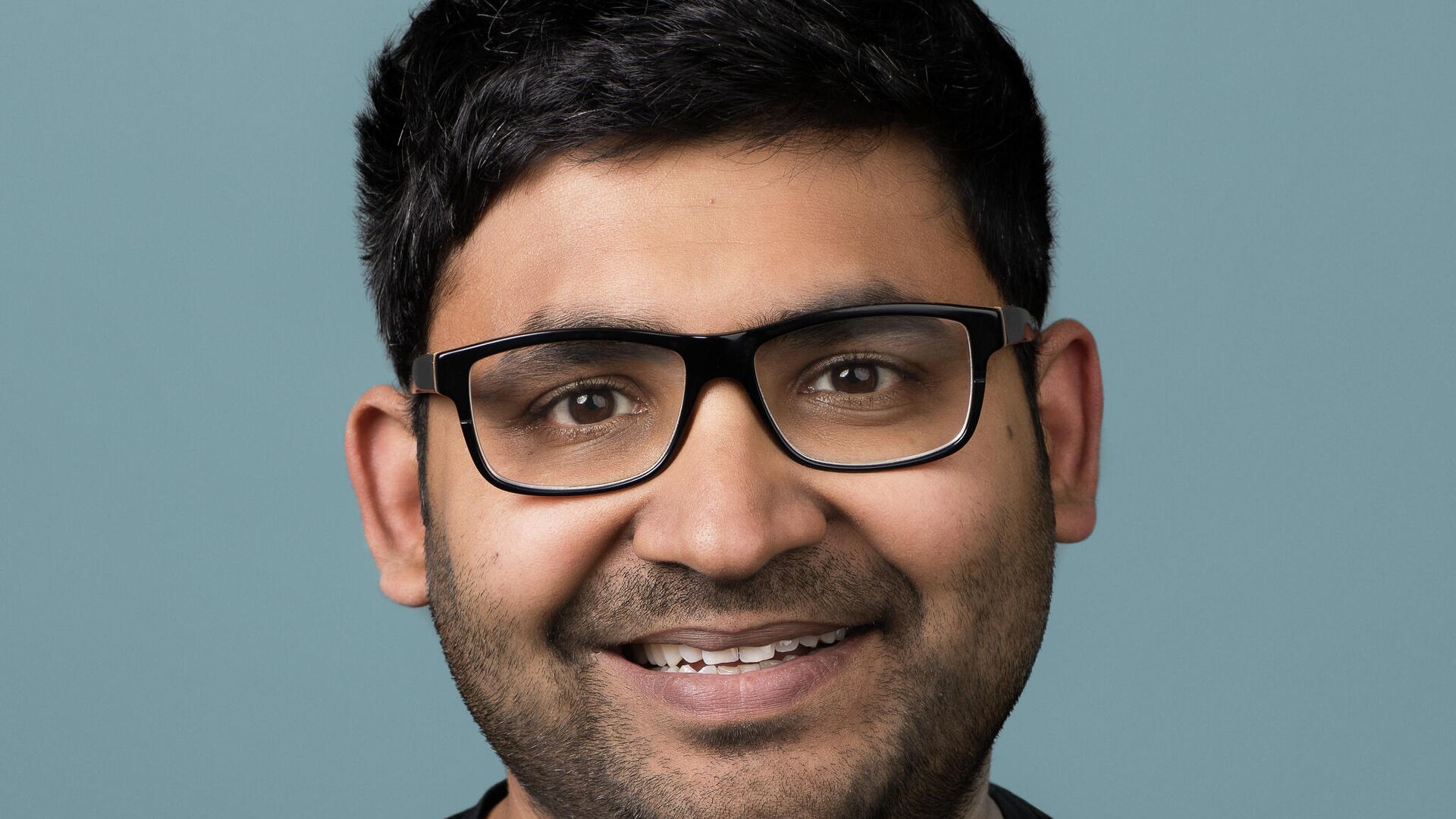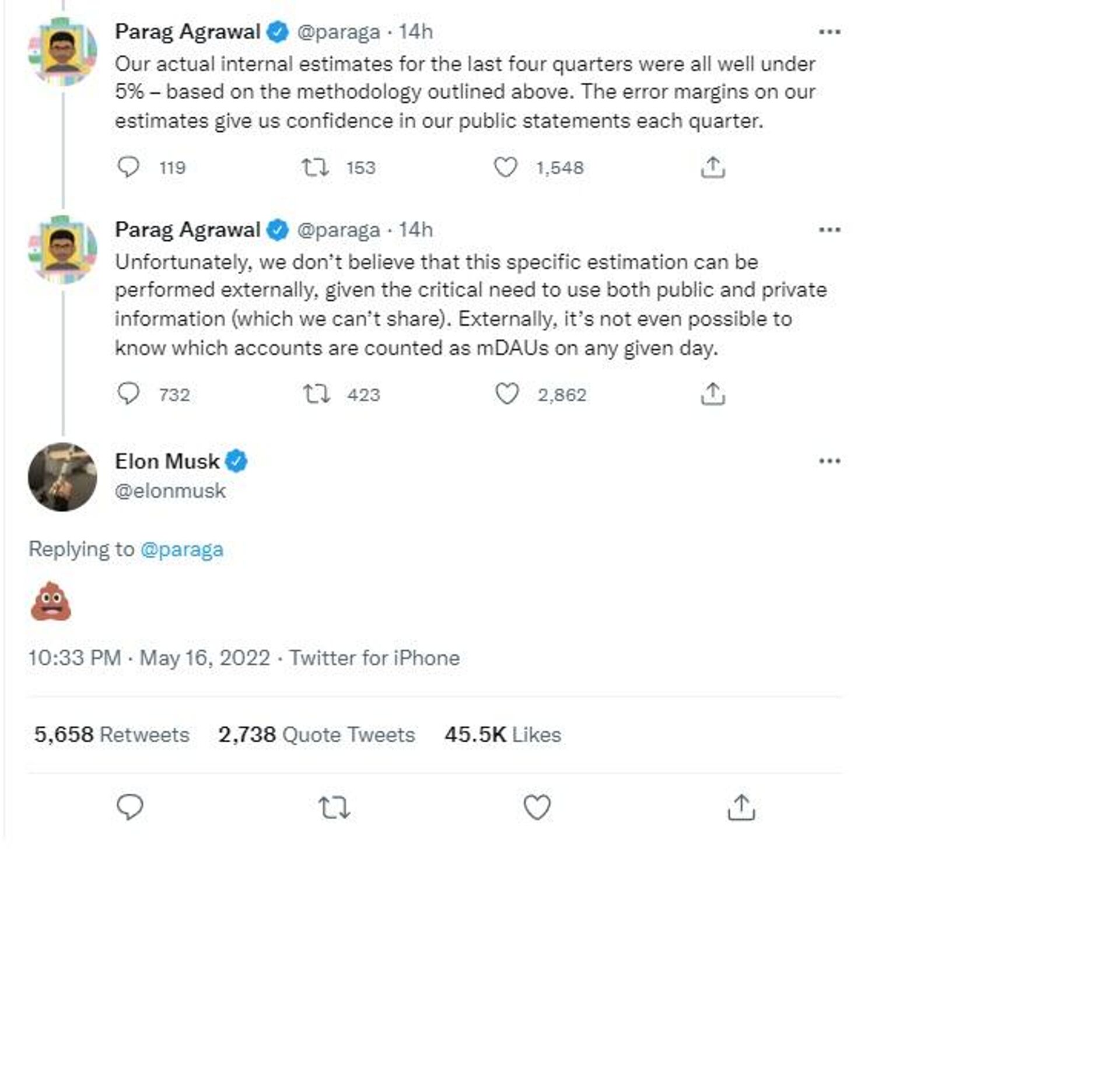Elon Musk Sends Faeces Emoji to Twitter Boss Parag Agrawal In Spam Bots Row
09:30 GMT 17.05.2022 (Updated: 12:56 GMT 14.04.2023)

© Photo : Twitter
Subscribe
Elon Musk, the world’s richest man, last month offered $44 billion to purchase the US social media giant, a deal which is set to conclude this year itself. Musk has said that one of his main goals as the head of Twitter will be to enhance overall user experience by “defeating spam bots” and “authenticating all humans”.
Tesla CEO Elon Musk has been left unimpressed after Twitter CEO Parag Agrawal expressed “confidence” on the methodology adopted by the microblogging site to detect spam bots.
“Unfortunately, we don’t believe that this specific estimation (of spam accounts) can be performed externally, given the critical need to use both public and private information (which we can’t share). Externally, it’s not even possible to know which accounts are counted as mDAUs,” Agrawal said in a series of explanatory tweets on spam accounts on Monday.

Elon Musk sends a poop emoji to Twitter CEO
© Photo : Twitter / @ElonMusk
Musk tweeted a poop emoji in response to Agrawal’s remark, thus expressing his disapproval of the Twitter CEO’s explanation.
MDAUs, or monetisable daily active users, are Twitter accounts which are able to show ads.
Musk, the world’s richest person, also questioned the Twitter CEO as to how advertisers could determine the value of their money if they didn’t even know if their ads were being shown to real people or just automated bots.
“This is fundamental to the financial health of Twitter,” the Tesla CEO remarked, after Agrawal reiterated Twitter’s previous assertion that spam bots form less than five per cent of site’s overall users.
The California-headquartered tech giant claimed on 28 April that its user base had grown year-on-year by 15.9 per cent to 229 million at the end of first quarter of 2022.
Agrawal revealed that the company’s strategy to weed out spam accounts was based on “multiple human reviews” of thousands of accounts.
“Each human review is based on Twitter rules that define spam and platform manipulation, and uses both public and private data (eg, IP address, phone number, geolocation, client/browser signatures, what the account does when it’s active…) to make a determination on each account,” said Agrawal.
In response to this particular remark, Musk asked if the Twitter executives had tried and called up the users to authenticate their veracity.
The CEO further claimed that the goals of bots and their tactics were “evolving” constantly, mostly in response to Twitter’s strategies to detect these accounts on the site.
“You can’t build a set of rules to detect spam today, and hope they will still work tomorrow. They will not,” he reckoned, adding that Twitter was involved in suspending over 500,000 “spam accounts” on a daily basis.
“We also lock millions of accounts each week that we suspect may be spam – if they can’t pass human verification challenges (captchas, phone verification, etc),” he highlighted.
Agrawal also explained that the use of “private data” was particularly important for Twitter to determine if the user was a bot or a real person.
“FirstnameBunchOfNumbers with no profile pic and odd tweets might seem like a bot or spam to you, but behind the scenes we often see multiple indicators that it’s a real person,” he said.
